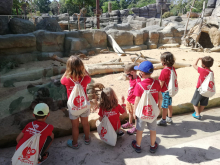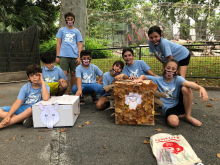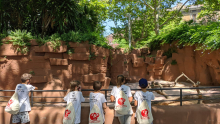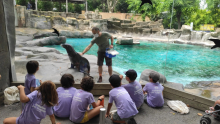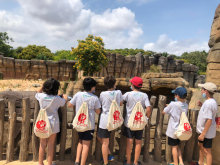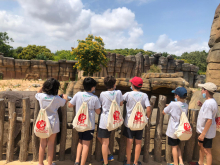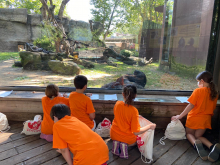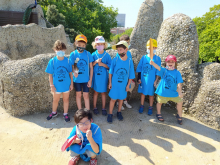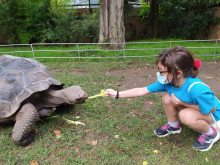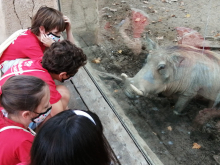
Mammals 4
This week we got to know each other better and the rest of the mammals.
Their reproduction: those that lay eggs, have a baby carrier and those that have a placenta.
How they take care of the young and how they feed them, we have also been able to see many young (chimpanzee, orangutan, mangabei, tit, orix, giraffe, gazelle ...).
Their diet: herbivores, omnivores and carnivores.
Its adaptations to the aquatic, air and terrestrial environment.
Their fantastic habilities like great athletes in speed, acrobatics, climbing, strength and ingenuity.



